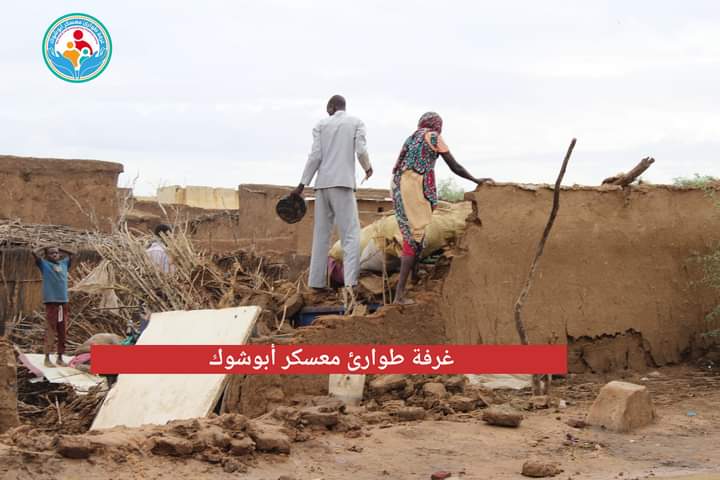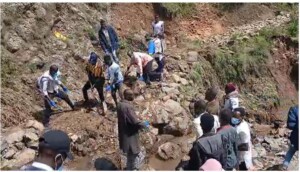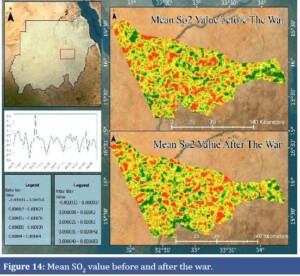Torrential rains destroy 3,000 homes in North Darfur’s Abu Shouk camp

At least 3,000 shelters collapsed in the Abu Shouk camp for displaced people in northern El Fasher due to heavy rainfall in the past few days, August 29 (Photo: Abu Shouk Emergency Room)
At least 3,000 shelters collapsed in the Abu Shouk camp for displaced people in the northern part of El Fasher, capital of North Darfur, during heavy rainfall in the past few days. Food distribution in the camp stopped more than a month ago, due to a lack of funds.
The Abu Shouk Emergency Room, set up by activist camp residents, yesterday reported the collapse of at least 3,000 homes in the camp due to the rains and floods that swept the camp this week. The people affected are living in the open and are in dire need of tents and tarpaulins.
The entire camp needs more drainage channels, as the stagnant water pools will cause many diseases among the malnourished population.
Furthermore, all soup kitchens in the camp and shelter centres have stopped working for more than a month due to the lack of support.
The emergency room called the humanitarian conditions in the camp “catastrophic”, as “the health situation went out of control”. Most children under the age of five are malnourished, “with no childcare supplies and medicines for the elderly”.
Abu Shouk Emergency Room urged “all international and national relief organisations” to support the charity kitchen projects and provide medicines to the people, especially the displaced, in Darfur.
The activists appealed to the warring Sudanese Armed Forces (SAF) and the paramilitary Rapid Support Forces (RSF) to cease fighting and stop their bombardments and shelling of the camps, as they “are not a third party to the war”.
El Fasher is the only Darfuri state capital that has not been captured by the RSF. It has a population of around 1.5 million, including about 800,000 displaced people who sought refuge in the city and adjacent camps from across Darfur following the outbreak of the war in 2003, and again in large numbers since the SAF-RSF war erupted more than 16 months ago.
The city, including the various camps for the displaced in the neighbourhood, has witnessed heavy battles between the SAF and the RSF since December last year. Since February this year, the clashes intensified.
Radio Dabanga reported earlier this week that 20 people were killed and 32 others were injured as a result of RSF shelling of the Naivasha market in Abu Shouk.
The humanitarian situation in the city is extremely dire. The Washington DC-based Famine Early Warning Systems Network (FEWS NET) said on August 1 that reasonable evidence indicates famine thresholds were exceeded in June in the Zamzam camp neighbouring El Fasher. Famine was also likely in two other camps in the El Fasher area, Abu Shouk and El Salam (aka Abuja camp), “but limited available evidence reduces the ability to confirm or deny a classification”, the network stated.
During this year’s rainy season (between June and September), Sudan has been affected by more than average rainfall than usual. Even the northern parts of the country witnessed heavy floods. In Red Sea state, the Arbaat dam collapsed, drowning various villages in the area.
FEWS NET confirmed yesterday that heavy and above-average rainfall has led to flooding in western, southern and eastern Sudan, and western Ethiopia. Moderate and still above-average rain (25-75 mm) is expected in Sudan, South Sudan, and Uganda next week.











 and then
and then